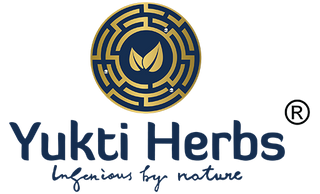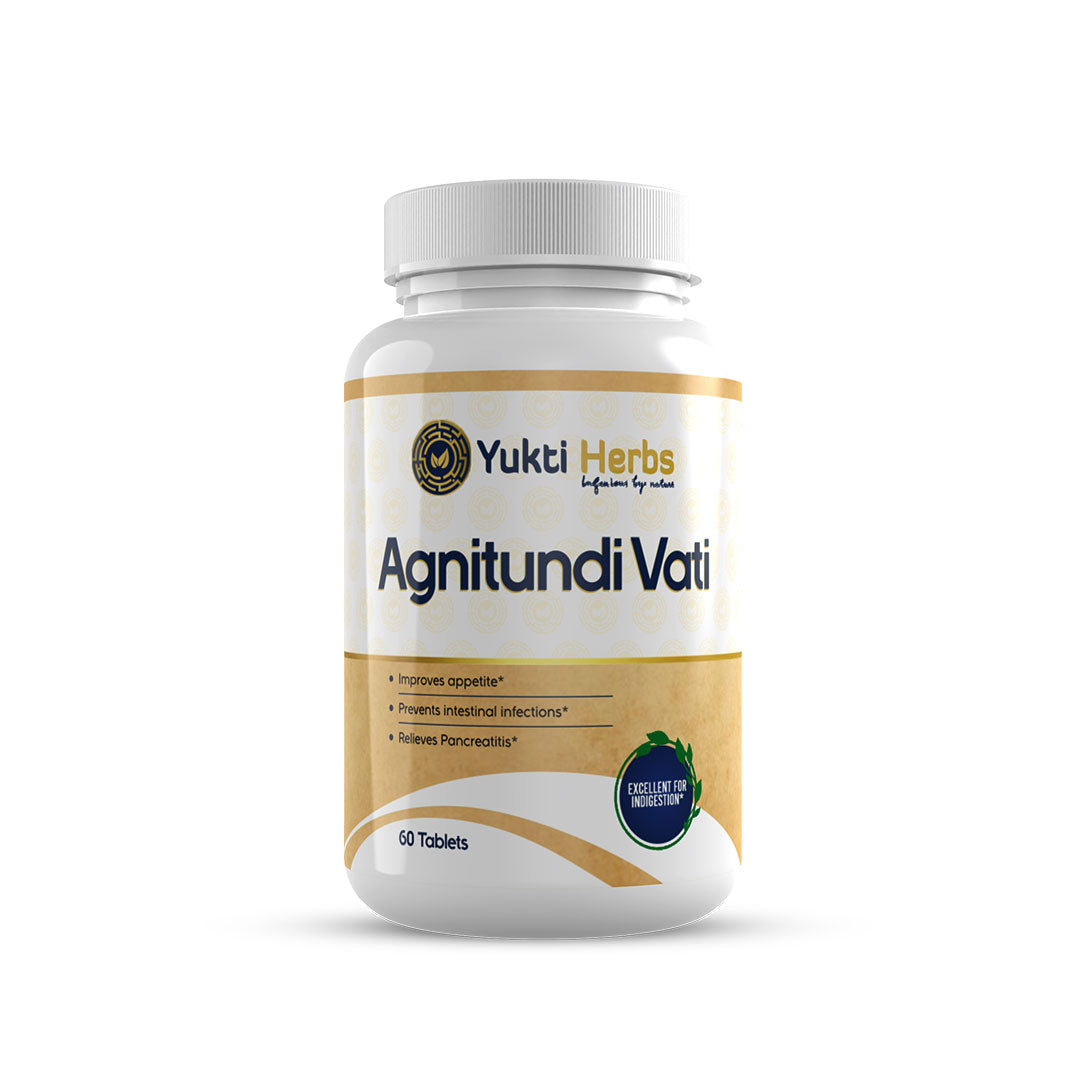
Nasya Therapy for Sinus & Respiratory Health
Ayurveda’s Ancient Power ‘Nasya Karma’: Breathe Deeper, Think Clearer and Heal Naturally
Breath is life, but when your nose feels congested, whether due to sinus inflammation, allergies, or seasonal changes, breathing becomes a task. Ayurveda, the ancient science of natural healing, offers a gentle but effective therapy known as Nasya Karma.
In Ayurveda, nasya is one of the five detox therapies of Panchakarma. This therapy involves the delivery of herbal oils or medicines via the nasal prong. It is not just known for sinus therapy; Ayurveda practitioners use Nasya for mental clarity, balancing doshas, and improving the head area by deep detoxification.
If you’ve ever wondered what Nasya is in Ayurveda, or if Nasya benefits could help your sinus, migraine, or stress issues, this guide will give you everything you need to know in a patient-friendly way.
What is Nasya Therapy in Ayurveda?
‘Nasya Karma’ is a unique therapy in which medicated oils, powders, or juices are administered through the nostrils. According to Ayurvedic wisdom, the nose is the gateway to the head. That means any therapy administered through the nasal cavity directly influences the brain, mind, and senses.
‘Nasya Karma’ treatment helps clear toxins from the head and neck region, making you feel lighter, clearer, and more energised.
Shloka Reference:
औषधम् औषध सिद्धं स्नेहो वा नासिकाभ्यां दीयते इति नस्यम्।
Translation: Nasya in Ayurveda refers to the administration of medicine or the use of medicated oils by way of the nasal passages. Since this therapy is delivered directly to the head and neck, it can help detoxify, balance doshas, and promote mental clarity (and general well-being).1

Not All Nasya is the Same: Exploring the Different Types of Nasya Therapy
As people often misunderstand, Nasya is not a single kind of therapy. The classical texts of Ayurveda, such as the Charaka Samhita, specify five types of Nasya Karma to be used depending on the person’s constitution, health imbalance, and other therapeutic needs. This clears the very basic fact that Nasya is not a universal application; it is specific to an individual’s health factors that yield targeted results. The following are the five types of Nasya Karma:
1. Navana Nasya (Oil or Decoction Nasya)
-
Indications: It is recommended for Shodhana (clearing out the toxins) or Brumhana (nourishing) according to the medicine recommended.
-
Medicine Used: Therapeutic oils, medicated cow ghee, and herbal decoctions that can be administered are selected on the basis of the patient’s condition.
-
When to Use: For conditions of weakness and degeneration and when there is a need to clear out Kapha (phlegm) conditions.
2. Avpeedana Nasya (Nasal Medicated Juice Therapy)
-
Indications: Mostly applied in the clearing-out process to reduce fluids
-
Medicine Used: Instillation of freshly pressed herbal juices (Swarasa) or concentrated herbal liquid in the nose.
-
When to Use: For chronic sinusitis, headache, rhinitis, and also to clear out excess Kapha (phlegm) accumulation.
3. Dhuma Nasya/Dhumapana (Medicated Fumigation)
-
Indication: For the removal of excess kapha and the movement of toxins via inhalation of medicated smoke.
-
Medicine Used: Inhalation through the nostrils of medicated smoke created from burning selected herbal powders, medicated cow ghee, or medicated oils through the nose and exhaled through the mouth.
-
When Used: Helpful in cases of heaviness of the head, cough, asthma, and conditions of stiffness and voice.
4. Pradhamana/Dhmapana Nasya (Insufflation Nasya) (Churna Nasya)
-
Indication: Used for cleansing and detoxification, for clearing out blockages.
-
Medicine Used: A potent purificatory Nasya developed using selected herbs to eliminate deeply entrenched doshas.
-
When Used: In chronic conditions, frequent colds, cough, asthma, allergies and also in the accumulation of excess kapha.
5. Pratimarsha Nasya (Gentle Daily Nasya)
-
Indication: Used as daily gentle care, preventive and nourishing nasya, which can be done daily
-
Medicine Used: Larger doses (6–10 drops per nostril) of medicated oils or ghee are used.
-
When Used: Usually given under supervision during Panchakarma therapies for neurological issues, severe dryness, debility, or degenerative disease.
Shloka Reference:
“नावनं चावपीडश्च ध्मापनं धूम एव च। प्रतिमर्शश्च विज्ञेयं नस्तः कर्म तु पञ्चधा ll”
Translation: This shloka speaks about the five types of Nasya Karma. Each type uses a mechanism of attention or focus point to either cleanse and lubricate the nasal passages (Navana), become a toxin removal mechanism (Avapeeda, Dhmāpana), equilibrate with the sense and the effects of medicated smoke (Dhuma), or for gentle nourishment daily (Pratimarsha). The five types collectively cover the treatment and the prophylactic actions of nasal therapy. This results in Nasya having multiple indications as an Ayurvedic therapeutic.2
|
Type of Nasya |
Main Action |
Medicinal substances used |
Indications |
|
Navana |
Nourishing or Detoxification |
Medicated oils, ghee, decoctions |
Dryness, headaches, neurological problems, mild Kapha-Vata conditions |
|
Avapeedana |
Cleansing by reducing excess fluids |
Herbal juices, concentrated liquids |
Sinus congestion, rhinitis, and excess discharges |
|
Dhmapana/Pradhamana (Churna) |
Powerful detoxificant, clearing blockage |
Herbal powders (Churna) |
Chronic congestion, heaviness in the head, epilepsy, lethargy |
|
Dhuma/Dhumapana |
Clears Kapha and toxins through smoking |
Herbal smoke, oils, ghee, powders |
Asthma, cough, nasal blockage, hoarseness, sluggish senses |
|
Pratimarsha |
Gentle daily preventative care |
A few drops of medicated oil/ghee |
Daily preventative care, boosting immunity, moisturising nasal passages, and gentle dosha balance |

Comprehensive Nasya Benefits: Transforming Health from Head to Toe
While many people seek out Nasya treatment primarily for chronic respiratory issues, the benefits of Nasya karma extend far deeper into overall physical and mental well-being. This therapy, when done correctly, is a comprehensive revitalizer for the head and sense organs.
Here are the key nasya benefits that have been documented for millennia:
1. Exceptional Sinus and Respiratory Health
-
Relief from Chronic Sinusitis: In Ayurveda, Nasya is considered one of the most effective approaches for sinus care. It works by clearing stubborn Kapha buildup, easing swelling in the nasal passages, and helping the body release trapped mucus. This provides lasting relief from the constant pain and pressure caused by chronic sinus issues.
-
Comfort from Allergens and Irritants: Regular Nasya helps in keeping the nasal passage lubricated, which in turn blocks out dust and allergens, which cause dryness and irritation. Therefore, it makes you less prone to seasonal changes and eases your breathing.
-
Enhancement of Vocal Tone: Reducing the prominence of clogs of mucus and the effects of flow in the nasal passages stemming from nasya treatment will improve vocal clarity.
2. Cognitive and Neurological Enhancement
-
Reducing Headaches and Migraines: The absorption of the medicated oil through the nose acts on the Marmas (or energy points) and nerve pathways in the head. This process calms the increased Vata and clears the obstructed Kapha, providing relief to the tension-type headache as well as selected chronic migraine headaches.
-
Supporting Clarity and Focus: Since nasya allows for prana vayu (the life force that moves in the head and mind) to move freely, it can help people remove the 'mental fog', have better intellect, and focus. The definition of ‘Nasya’ in Ayurveda often refers to this 'clarity'.
-
Relieving Insomnia: Specific nasya oils will assist in taming Vata dosha, which makes one enjoy a deep & long sleep.
3. Sensory Organ Health
-
Improved Eyesight: Although it is applied to the nose, the treatment has a positive, indirect effect on the eyes by aligning the energies and channels within the head area, which helps to sustain eyesight.
-
Improved Sense of Smell (Olfaction): Nasya karma is a crucial form of therapy to enhance smell, as any chronic congestion, ageing process, or illness can degrade the sense of smell.
4. Detoxification and Balancing the Doshas
-
Strong Detoxifier: Nasya, as one of 5 the five Panchakarma treatments, is an extremely effective detoxifier. It pulls toxins that have settled in the head, neck, and throat area, facilitating their expulsion and preventing them from circulating elsewhere.
-
Restoring Doshic Imbalance: Here personalised approach in nasya is being followed as treatment is based upon your unique constitution and current imbalance. Different oils with different properties, such as nourishing oils for Vata Dosha, cooling formulations for Pitta Dosha and strong decoctions for Kapha Dosha, are used to restore the harmony in imbalanced doshas.
Classical Wisdom & Proofs about the Efficacy of Nasya Karma
Acharaya Charak recognises ‘Nasya Karma’, a gentle yet powerful way that clears the mind, improves breathing and strengthens the head region. It is said that when Nasya is done regularly, it not only helps in treating diseases but also enhances overall vitality and well-being.
Shloka Reference:
न तस्य चक्षुर्न घ्राणं न श्रोत्रमुपहन्यते।
न स्युः श्वेता न कपिलाः केशाः श्मश्रूणि वा पुनः॥न च केशाः प्रमुच्यन्ते वर्धन्ते च विशेषतः।
मन्यास्तम्भः शिरःशूलमर्दितं हनुसङ्ग्रहः॥पीनसार्धावभेदौ च शिरःकम्पश्च शाम्यति।
सिराः शिरःकपालानां सन्धयः स्नायुकण्डराः॥नावनप्रीणिताश्चास्य लभन्तेऽभ्यधिकं बलम्।
मुखं प्रसन्नोपचितं स्वरः स्निग्धः स्थिरो महान्॥सर्वेन्द्रियाणां वैमल्यं बलं भवति चाधिकम्।
न चास्य रोगाः सहसा प्रभवन्त्यूर्ध्वजत्रुजाः॥
Translation: The following benefits of Nasya Karma can be derived from the above verses:
-
Healthy sense organs – protect the eyes, nose and ears.
-
Prevents greying of hair & hair loss – strengthens the roots of the hair and promotes hair growth.
-
Relief in headaches, stiffness and/or migraines – alleviates shira shoola (headache), manyastambha (stiffness in the neck), and ardhāvabhedaka (migraine).
-
Clears congestion in the lungs – provides relief in sinusitis, nasal congestion and has a perspective of improving breathing.
-
Improves voice and facial glow – voice becomes stable, pleasant and smooth, and the appearance of skin radiates.
-
Improves memory & mental fog – It strengthens your brain and nervous system, improving focus and concentration
-
Acts as an anti-ageing – Helps in preventing premature ageing of the head and sense organs.3
Note: At Yukti Herbs, our Ayurveda experts suggest Nasya as part of a holistic treatment plan for conditions like sinusitis, migraine, eye & vision disorders, hair fall, cervical issues, and stress-related disorders, helping in the overall wellness of a patient.

How is Nasya Performed? A Step-by-Step Guide to Nasya Karma
While the daily Pratimarsha nasya easy ayurveda method can be done at home, a full, intensive Nasya karma procedure is a specialised treatment best performed under the guidance of a trained therapist in a clinical setting. Understanding the process, however, is key to appreciating the therapy's depth.
The Complete Clinical Nasya Treatment Process
Ayurveda describes ‘Nasya Karma’ not simply administering oil or herbal decoctions into the nasal passages, but a well-executed treatment plan, which is done in three stages. The following three stages are:
1. Purva Karma (The Preparation Stage)
This stage prepares the head and face for the treatment, making the tissues receptive to the nasya oil and promoting the movement of congested toxins.
-
Abhyanga (Application of the Oil): The panchakarma therapist proceeds to apply warm herbal oil to the entire face, forehead, ears, and neck in a gentle technique. This relaxes the muscles and opens up the subtle channels (Srotas).
-
Swedana (Hot Steam Therapy): A gentle, localised steam (fomentation) is applied to the same areas. The heat or warmth from the steam strengthens the action of breaking down the solidified Kapha and toxic material, preparing these tools for removal. The patient lies on their back, with the head tilted back slightly.
2. Pradhana Karma (The Nasya Administration Stage)
The Pradhana Karma stage is the main action of the Nasya Karma therapy.
-
Positioning: The patient lies on their back, and the head is tilted back slightly so the administered nostril faces up. A pillow or towel is often placed under the neck
-
Administration: The therapist then prepares the indicated amount of warmed nasya oil, medicated ghee, or other substance and administers that appropriate amount of this measurement, usually drop by drop, into each nostril under the supervision of a senior Ayurvedacharya. This stage also includes ensuring the oil travels back deep into the nasal passage. The specific substance and quantity are dependent upon the conditioning and type of Nasya being implemented.
-
Inhalation: After the drops have been completely delivered, the patient is gently instructed to inhale slowly and deeply. Gentle rubbing of the soles of the feet, palms, and neck is sometimes done to aid the absorption and prevent the substance from going down the throat (though this is a natural part of the treatment).
3. Paschat Karma (The Aftercare)
This stage helps clear the passages and brings the body back to equilibrium.
-
Discharge Management: The patient is advised to spit out any phlegm or discharge that comes into the throat. It is crucial not to swallow this, as it contains expelled toxins.
-
Gentle Swedana: Once the effects subside, a very gentle secondary fomentation or massage might be given to soothe the areas.
-
Rest and Rules: The patient is advised to rest briefly and avoid exposure to cold air, dust, or smoke immediately after the nasya treatment.
The Science Behind Nasya Karma Treatment in Ayurveda
Among the most desirable therapies in Ayurveda is Nasya Karma. While modern research is beginning to confirm the olfactory and nasal access to the brain, ensuring the efficacy of targeted treatment, it is through years of experience, diligence and testing that Ayurvedic practitioners have long known that a nasal route of administration is superior to the oral bioavailability of medication and can cross the blood-brain barrier.
How Nasya Works for Sinusitis
-
Direct Administration – The Nasya oil is applied directly to the sinuses and provides immediate relief.
-
Mucolytic Action – The herbal oil combinations dissolve thick mucus and promote drainage.
-
Anti-inflammatory Properties – Traditional oils will decrease swelling and irritation in the nasal passages.
-
Immune Modulation – Nasya will strengthen local immunity if done routinely and will ultimately decrease the recurrence of sinusitis.
-
Stress Withdrawal – Finally, Nasya treatment will initiate the parasympathetic nervous system and ensure deep healing.
Essentially, Nasya Karma does not just treat the symptoms; it also restores the balance of support and enhances your own defences.
Experience Authentic Ayurvedic Sinus Care with Yukti Herbs
The expert team at Yukti Herbs provides Ayurvedic Sinus treatment, combining ancient ideas from Panchakarma with compound herbal oils, for a secure and efficient mode of treating your sinus congestion. Our Ayurvedic experts will work with you to develop the correct treatment plan for your needs, whether you suffer from chronic sinusitis, recurrent upper respiratory illnesses or nasal congestion.
Choosing The Right Nasya Oil: Tailored to Your Dosha and Disorder
To get the real impact of Nasya Karma, it depends largely on the purity, potency and formulation of selected nasya oil. The preparation must be adequately selected based on the individual's Prakriti (constitution), the present health concern, and which Dosha is imbalanced.
Popular and Trusted Medicated Nasya Oils
|
Nasya Oil |
Description |
Best For / Use |
|
Anu Taila |
The most well-known and common Nasya oil. A multi-herb profile that balances all three Doshas |
|
|
Kshirabala Taila |
A milder, cooling, and nourishing oil. Useful in calming Vata-Pitta imbalances. |
|
|
Shadbindu Taila |
A stronger, stimulating, and cleansing oil used within detoxification protocols. |
|
Note: Always consult with an Ayurvedic practitioner before selecting a specific oil, especially for therapeutic doses (more than 2 drops). Your doctor will accurately determine nasya oil to your distinctive, unique needs, and ensure that the oil aligns with your constitution.
Specialised Preparations for Modern Needs
At Yukti Herbs, we recognise that today’s health challenges call for carefully adapted traditional solutions. Our specialised Nasya oils are prepared with authentic Ayurvedic methods while meeting modern quality standards—bringing together classical wisdom and contemporary care to ensure maximum therapeutic benefit.
Nasya at Home: How to Administer Safely (Pratimarsha Nasya)
While heavy (or intensive) Nasya works supervised, gentle (or pratimarsha) Nasya is an easy, safe, self-administered technique to incorporate into your daily routines at home. Here’s your guide to Nasya, easy for you to practice Ayurveda at home:
What you will need:
-
A high-quality Nasya oil like Anu Tailam or Shadbindu Tailam (or plain organic sesame oil/cow ghee for Vata types) (It is always safe to check with your practitioner what the most appropriate Nasya oil to use, even for Pratimarsha Nasya).
-
A Dropper.
Step-by-Step Routine
-
Choose the Right Time: Morning is best, after brushing your teeth and clearing your bowels, but before eating.
-
Prepare Oil: To begin, warm the Nasya oil by placing it in a cup of warm water. Put a drop on your wrist to make sure it is comfortable
-
Posture: When you are ready, take a comfortable cross-legged yoga position on the floor or in a chair with a straight spine, leaning your head back slightly.
-
Apply: Using a dropper, put only 1-2 drops into the nose (each nostril) and inhale gently, then do the same for the nose.
-
Massage: After the drops are applied, gently massage the bridge of your nose and your temple, and take a few breaths in a relaxed manner.
-
Follow-up: You may feel the oil trickle into your throat. This is ok, and you may gargle with warm water if you wish.
Contraindications:
-
Do not administer Nasya Oil immediately after a bath, exercise, and/or a large meal.
-
Do not do it if you have an acute fever, indigestion, or are intoxicated.
-
Women should not do Nasya if they're on their period or if pregnant, unless not suggested by an expert.
-
Do not perform if there is severe nasal bleeding or if you just had nasal surgery.

Nasya Practice: Safety Essentials, Contraindications and Professional Guidance you need to know
Nasya karma is safe, gentle, and incredibly potent; however, it is a medical treatment, and not everyone can be treated with it at all times. Understanding the contraindications of nasya karma will help ensure your nasya therapy is both beneficial and safe
When to SKIP Nasya Treatment:
-
Immediately after: A bath, eating or drinking a heavy beverage.
-
During pregnancy (only for potent cleansing types).
-
When you have: Acute fever, Severe inflammation, Infectious disease.
-
Immediately after: Heavy exercise or a high-intensity workout
-
When you are emotionally upset (e.g., anger, grief).
-
Individuals with severe bleeding disorders.
When to Consult a Qualified Professional
-
First-time nasya users should seek a qualified Ayurvedic practitioner
-
Individuals with certain health conditions need customised treatment protocols
-
Pregnant women and children require unique formulations
-
Those taking medications should check for possible interactions
When is Nasya Therapy Considered?
Ayurveda recommends nasya therapy for:
-
Frequent sinus infections
-
Migraines and tension headaches
-
Neck stiffness
-
Dryness of the nose and throat
-
Sleep issues like Insomnia or sleep apnoea
-
Allergic rhinitis
-
Stress and mental fatigue
Using Nasya Together with Other Ayurvedic Treatments at Yukti Herbs
Nasya karma can be taken together with:
-
Abhyanga – Increases uptake of oil and relaxation
-
Shirodhara – Increases cognitive clarity
-
Panchakarma detox programmes are a good adjunct for cleansing and refreshing
An integrated way will give you the maximum possible benefits of nasya therapy and wellness experience.
Yukti Herbs Distinction: Quality and Authenticity in Every Drop
Yukti Herbs provides authentic Nasya Karma, ensuring high-quality sourcing of herbs, oils and traditional preparation. Modern consumers expect dosage, safety and efficacy, which is in addition to using proven, traditional therapy, the nasya oils we provide--are subject to a broad variety of tests.
The Yukti Approach to Traditional Healing
-
Authentically Sourced: We work with our traditional suppliers who know which herbs to procure that are of higher quality than others.
-
Classical Preparation: Our manufacturing ensures the product is made according to the description of the classical texts per medication.
-
Modern Testing: Every batch of our products is subjected to thorough safety and potency testing as required in pharmacology.
-
Expert Guidance: Our holistic team includes Ayurvedic professionals to support you and provide consultation along the way.
Why you should also seek guidance from a professional:
-
Proper Diet: Our Ayurvedic expert will assess your constitution properly to know which dosha is out of balance, as well as which specific type and potency of nasya to use.
-
Proper Oil Selection: Our expert will assess and choose which type of nasya oil should be used (i.e. Anu Taila versus Shadbindu) and will assess and choose the route of delivery (oil, ghee, or powder), taking into consideration your constitution and ailment.
-
Proper Follow-up: Clinical nasya will include specific preparation and aftercare to achieve maximum benefit of the procedure while minimising discomfort with the treatment.

Conclusion: The Timeless Practice of Nasya
Nasya Karma is one of the most effective treatments of Ayurveda for sinus health, detox, and mental clarity. The benefits of Nasya in regard to sinus treatment within Ayurveda, as well as stress relief and brain health, are endless.
Whether you are seeking help with:
-
chronic sinus issues
-
The cognitive aspect of brain & nervous system function,
-
or caring about making preventive wellness a part of your healthcare routine
Nasya provides an effective and safe engagement with the process of health & wellness and promotes overall well-being. The beneficial aspects of nasya are not just developed for symptomatic relief for a condition or imbalance but provide deeper aspects of health and support vitality and health.
Our team at Yukti Herbs is happy to support you in your journey of wellness and health with a clear understanding of nasya, the ancient practice. Our nasya oil products are a wonderful combination of ancient wisdom and current standards, providing the highest quality therapeutic use of nasya while receiving the nasya process and experience.
Act Today! Find Balance Through The Power of Nasya
Begin your nasya journey today, and schedule a consultation with our Ayurvedic specialists and discover why so many generations have turned to this gentle but powerful remedy for long-term health and vitality. After all, when ancient wisdom combines with modern understanding, the possibilities for healing are truly endless.
Enjoy the true experience of authentic Ayurvedic nasya therapy with Yukti Herbs - when tradition meets excellence in every drop.
References:
-
Sushrut Samhita, Chikitsa Sthana, Chapter 40, Shloka 21
-
Charak Samhita, Siddhi Sthana, Chapter 9, Shloka 89
-
Charak Samhita, Sutra Sthana, Chapter 5, Shlokas 58-62
Nasya Karma FAQs (Answering the Most Common Questions)
Nasya is a therapeutic modality in Ayurveda where medicated herbal oil or medicine is administered through the nasal passages. The application of medicines in this way cleanses the head region, assists with breathing, tones the senses, and can benefit sinusitis, migraine, and stress.
For daily health (Pratimarsha Nasya), 2 drops of oil may be used every day at home. Therapeutic nasya may customarily be done for a treatment time of 7-14 days or as evaluated and advised by a Panchakarma expert.
Classical Ayurvedic oils such as Anu Taila and Shadbindu Taila are most often suggested as a treatment for sinus issues. The "best" oil may vary based on your dosha imbalance and symptoms. Therefore, it would be best to consult a professional.
Nasya is an excellent way to reduce Kapha and improve drainage of the sinuses, and improve immunity. Some patients do report long-lasting relief from chronic sinus problems after having Nasya practised regularly, but this will depend on their ability to practise the prescribed diet and lifestyle changes consistently.
Yes – gentle daily nasya (2 drops of medicated oil) can be performed safely at home to support health promotion/prevention purposes. But for therapeutic cleansing, Nasya Karma should definitely be performed under the guidance of an Ayurvedic doctor.












Leave a Comment